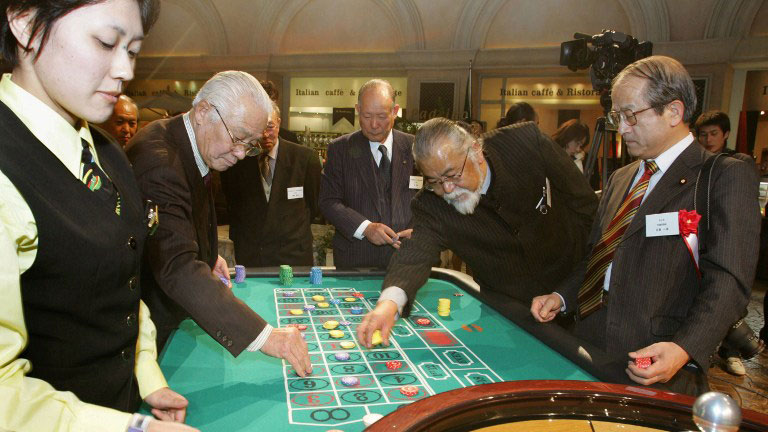Despite pitfalls, Prime Minister Abe is confident that casinos can save Japan.
Chapter 23 of Japan’s Criminal Code strictly prohibits gambling in the country, with the exception of horse race betting, pachinko, several kinds of motorsports, and the lottery. One of the most technologically advanced nations in the world, Japan ironically remains one of the few that refuses to allow casinos to operate on its shores. Japan’s Prime Minister Shinzo Abe, however, aims to change this by allowing international operators to begin building Integrated Resorts (IRs) on the country.
Integrated Resorts – also known as casino resorts – offer their patrons the unique experience of coming to a place that offers just about everything they could want. With 5-star hotels, local restaurants, spa and salon services, and sometimes even their own retail stores, IRs are compounds built with convenience in mind. Appealing to international guests, IRs are the more common form of casinos, with Macau, Singapore, and Las Vegas all boasting of several casino resorts.
Prime Minister Abe hopes to have the casino resorts open in time for the 2020 Olympics, which Japan will be hosting. Should the bill be passed, two or three IRs will be permitted to break ground in the country as they observe the potential effects casinos could have. The legislation’s supporters claim that the IRs would generate thousands of jobs for Japan’s citizens, as well as billions in revenue, playing as major tourist attractions when the world comes to Japan for the 2020 Olympics. After all, some public sports and football pools are held under special laws so they can serve as revenue sources for the government. With the global gambling industry making over $130 billion a year, the amount of money to be made from IRs is undeniable. Those who do not support the bill say that because the nation has gone without gambling for so long, they run the risk of exposing the Japanese people to gambling addiction.
Still, Japan remains ripe for the picking, and operators are already gearing up for the potential lift of the ban against gambling. Intercasino, the world’s first online casino, has already launched a Japanese version of its website, while Caesars Entertainment Corp. has already famously announced its intent to invest $5 billion into building one of the first IRs in the country. Even Konami, a leading name in game development, has started making plans to include casino gaming in their own portfolio.
Last year, hearings on the proposed bill were postponed, with many claiming that the bill was too controversial. Prime Minister Abe, however, remains hopeful, claiming that he would conduct further studies to see how IRs could potentially affect the country. While these delays might mean that the casinos will not be up in time for the 2020 Olympics, they remain on the agenda.


